Dispute over RHI personal information
- Published
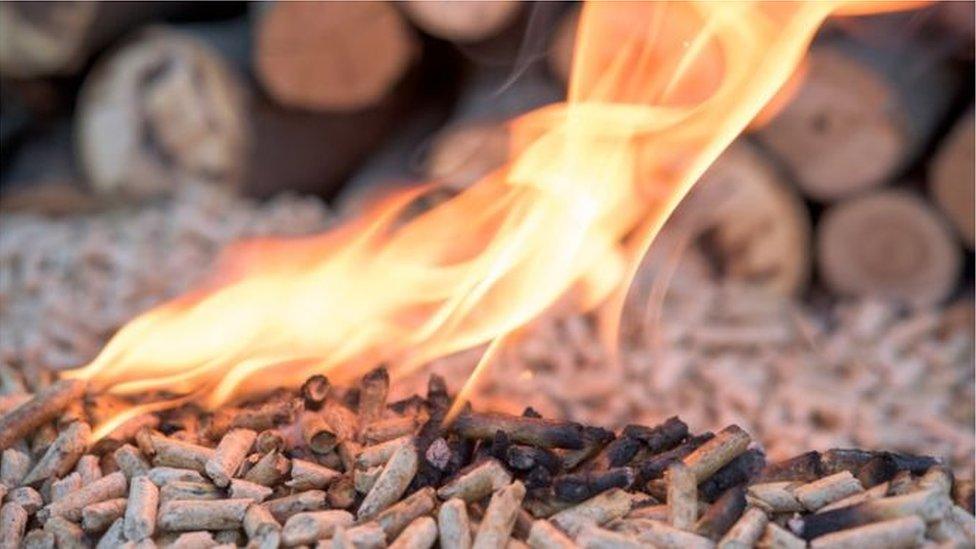
Flaws in setting the RHI scheme's subsidy rate left it open to abuse as claimants could earn more cash the more fuel they burned
There was a legal dispute over whether civil servants running the RHI scheme could be given the names and locations of applicants, an inquiry has heard.
The lack of personal information meant it would be impossible for officials to identify whether multiple boilers were being installed on a single site.
The RHI scheme got up and running in 2013.
It was administered by the Office of Gas and Electricity Markets (OFGEM) on behalf of the Department of Enterprise Trade and Investment (DETI).
OFGEM was providing information on uptake, but that did not include personal information.
Inquiry counsel Donal Lunny said there had been a legal dispute between the two about the "data protection act, who was the data controller and who owned the data".
He said DETI had tried to get additional information from OFGEM, but the issue had remained unresolved for a considerable time.
The inquiry has been hearing further evidence from Peter Hutchinson, the civil servant in charge of the day to day running of the scheme.
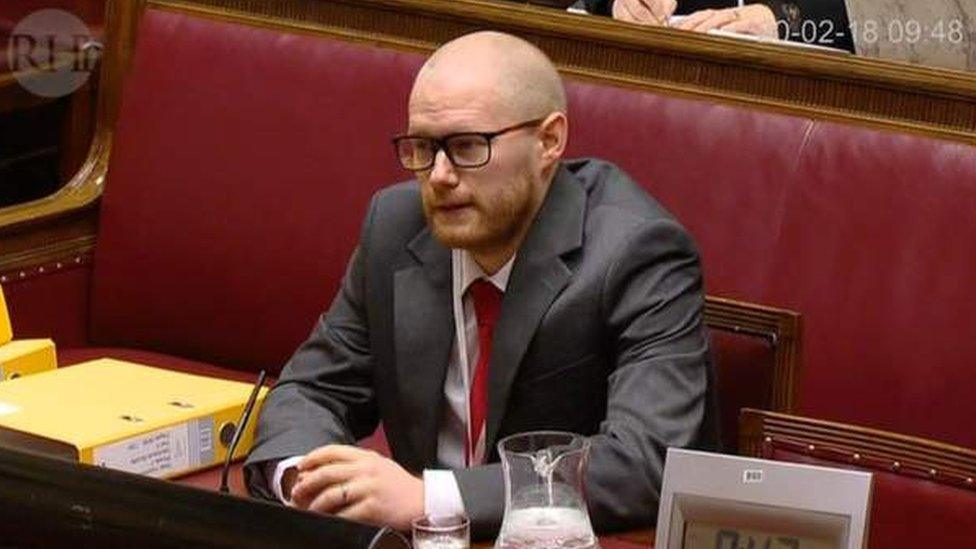
Peter Hutchinson was the only full time official dedicated to the scheme
DETI was given information about accreditation numbers, while technical information on how much heat was being generated and how much subsidy was being paid was also included.
The inquiry was also told about attempts by DETI officials to get more information.
In July 2013 Fiona Hepper, the head of energy division at DETI wrote asking for it.
She said applicants' names and postcodes would be useful as that would ensure that there was no "double-funding" where firms could benefit from different government grants.
Ms Hepper said the information would also help officials brief the then DETI minister Arlene Foster.
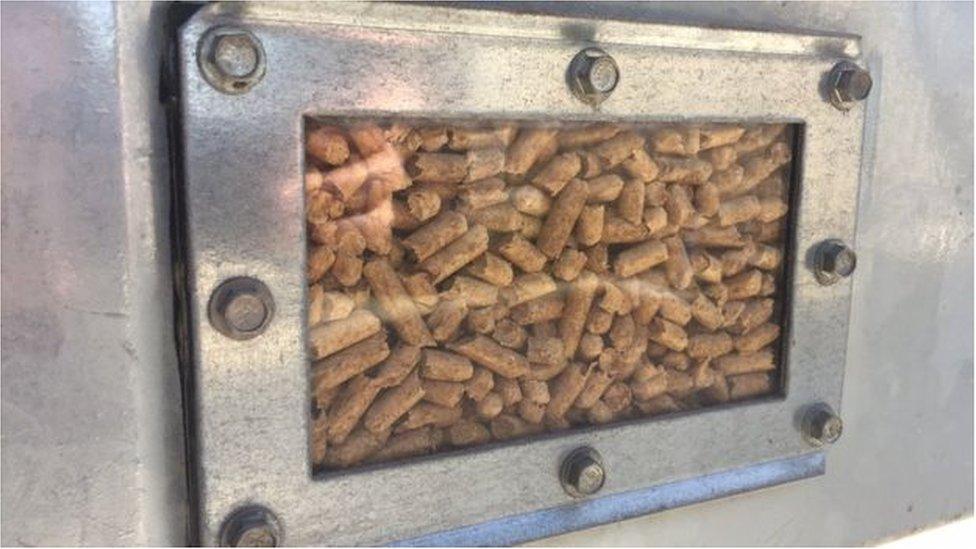
The lack of personal information meant it would be impossible for officials to identify whether multiple boilers were being installed on a single site.
"Northern Ireland is a small place and our minister regularly asks about individual companies," Ms Hepper wrote.
Mr Hutchinson said the question of data sharing was never really resolved in his time.
Earlier Mr Hutchinson told the inquiry he perhaps didn't fully understand how multiple 99kw boilers in a single building could be eligible for separate subsidy payments.
He believed that the heating capacities of the boilers would be treated as cumulative and would only attract the lower tariff payment.
But the rules actually said that as long as the boilers were each heating a separate hot water system, they could attract separate subsidy payments.
OFGEM alerted departmental officials to the risk before the scheme started.
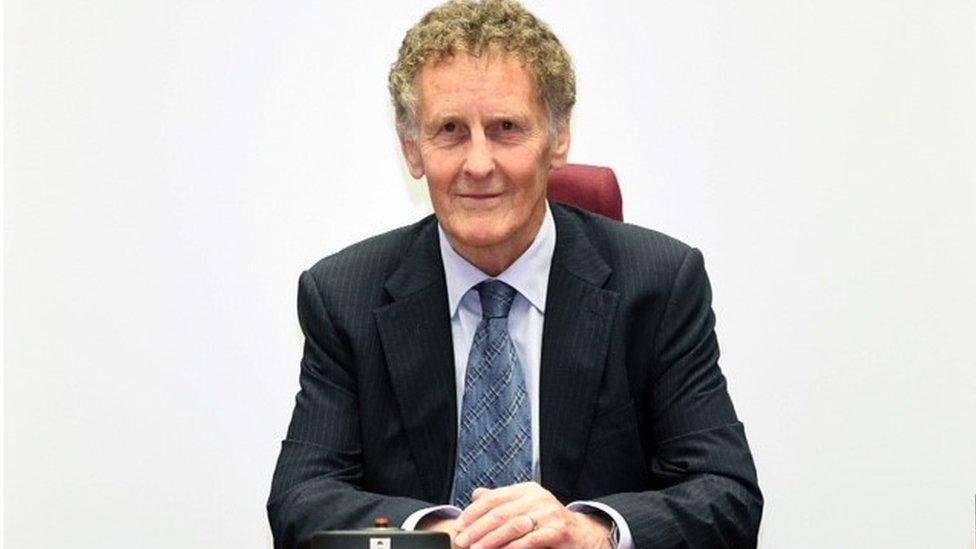
Sir Patrick Coghlin is chairing the RHI Inquiry, which is expected to last for several months
It suggested that it be countered by defining multiple boilers as a "heating system".
But DETI did not take up the advice because it felt it would mean the Northern Ireland scheme diverging from that in Great Britain.
The inquiry has already heard that civil servants were keen to avoid differences in case it added to administration costs.
Mr Hutchinson later told the inquiry that when he heard the phrases "cash for ash" or "burn to earn" now it made him feel "a bit sick".
They were used at promotional events in the early days of the scheme when installers used them to encourage investment.
Mr Lunny asked whether anyone had approached him at such events saying that the scheme meant they could have free heat and an income.
Mr Hutchinson said he'd no memory of any such approach.
He said he'd seen or heard nothing at the promotional events that made him think "right let's get back to the office and investigate".
He said he only became aware of the scale of the issue with the publication of the Northern Ireland Audit Office Report into RHI in June 2016 and the subsequent inquiry by the assembly's Public Accounts Committee.
- Published20 February 2018
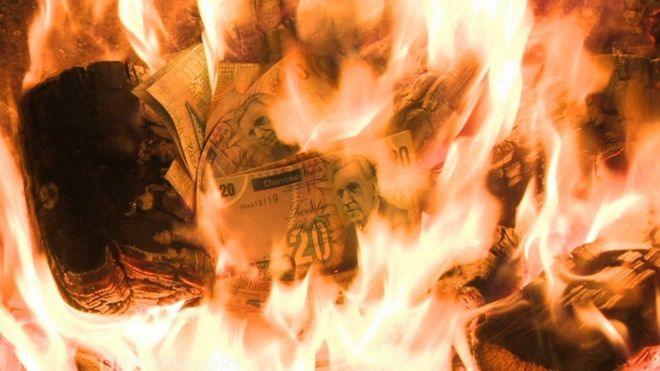
- Published7 November 2017

- Published7 November 2017

- Published23 October 2019
